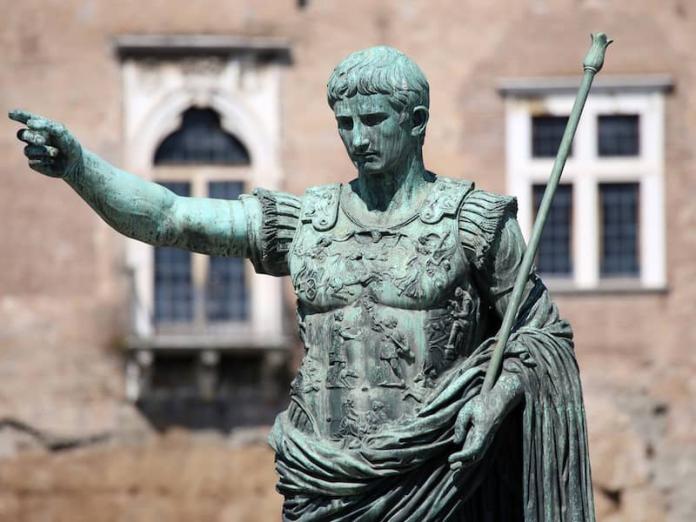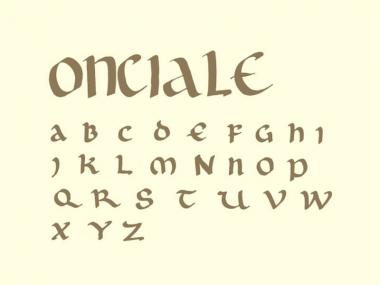What Does ‘Veni, Vidi, Vici’ Mean?
Latin gives us many well-known phrases. Today, we’ll start with Caesar’s famous words, “veni, vidi, vici.”
Latin. The language of ancient Rome, and of gladiators, emperors, conquerors, and poets. Latin is a dead language today—it’s spoken nowhere in the world as a primary language—yet it remains evocative. Phrases that were coined in Latin centuries ago still have meaning for us, even now, in the 21st century.
Today we’re going to talk about three of the most famous Latin words in history—”veni, vidi, vici”—meaning “I came, I saw, I conquered.”
You probably know that these words were spoken by Julius Caesar, the general and statesman who ruled the ancient republic of Rome.
Here are a few things you might not know about this phrase and about Caesar.
‘Veni, vidi, vici’ means ‘I came, I saw, I conquered’
Caesar made his “veni, vidi, vici” proclamation after winning in the three-sided civil war that rocked the Roman empire in the first century BC. After defeating King Pharnaces of Pontus at the city of Zela in 47 B.C., he sent a letter back to his friend Amintius in Rome. He wrote, “I came, I saw, I conquered.”
This wasn’t just a boast; his victory was super fast. Caesar and his armies defeated Pharnaces within five days of their arrival at Zela—and after only four hours of fighting.
When Caesar returned triumphantly to Rome, he held a victory parade. “Veni, vidi, vici” was inscribed on a large placard called a “titulus,” that was carried at the head of the parade. That Latin word is the origin of our English words “title,” “tilde” (the little squiggle you see over the letter N in Spanish), and “tittle” (the name of the dot over the lowercase letters I and J).
Caesar ‘crossed the Rubicon’ literally, not figuratively
The Roman civil war had been brought about by political infighting too complicated to explain here. But the first official stroke in the war was taken by Caesar when he marched his troops out of their province in Gaul (the region we call France today), across a small river, and into Italy. The river was called “the Rubicon.”
In crossing the Rubicon, Caesar broke the law because generals were not allowed to move their armies out of the province to which they were assigned. Caesar’s action was decisive; it was an unmistakable act of war.
Ever since, the phrase “crossing the Rubicon” has meant any step someone takes that commits them irrevocably to a new course of action.
‘Julius’ isn’t a first name
Another interesting fact is that the “Julius” in “Julius Caesar” wasn’t the general’s first name. In other words, it wasn’t a name his parents picked out because they like it. Rather, it referred to his clan: clan Julius.
A clan—known as a “gens” in Roman times—was a group of families bound together by their belief in a common origin and their use of common religious rites. “Gens,” by the way, comes from an ancient Greek word meaning “to be born.”
Caesar’s actual first name—his “praenomen,” in Latin—was Gaius. “Gaius” comes from the Latin verb “gaudere,” meaning “to rejoice.” It’s the origin of the English words “enjoy” and possibly “jolly.” Caesar’s great-nephew, and his successor, was also named Gaius; Gaius Octavius. Octavius eventually became the first Roman emperor. He took on the name “Augustus,” signaling his attainment of supreme power across the Roman world.
The Julian calendar
In recognition of the great deeds performed by Caesar and Augustus, two months in the ancient Roman calendar were renamed. The fifth month, Quintilis, became Julius, what we now call “July.” The sixth month, Sextilis, became Augustus, or today’s “August.”
MORE: How English Months Got Their Names
Caesar also reformed the old and inaccurate Roman calendar, which was three months ahead of the solar calendar. His new system, which divided the year into the 12 months we know today, was called—you guessed it—the Julian calendar. It was used well into the 1500s, when it was usurped by the Gregorian calendar we use today.
Does ‘kaiser’ mean ‘caesar’?
We’ve already talked about Caesar’s name, but here’s one more fact. Although the name “Caesar” started out as the general’s proper name—or “cognomen,” as it was known then—it quickly took on a broader meaning. It became less of a name and more of a title.
It was taken on by Octavius, who became “Caesar Augustus” and by emperors all the way through the 14th century AD. That’s when Constantinople, the tiniest remnant of what was once the mighty Roman empire, fell to the Ottomans.
In fact, “Caesar” is believed to be the earliest Latin word adopted into Germanic—the core root language of English, German, Dutch, and many modern languages. “Caesar” morphed into the German “kaiser,” the Russian “tsar,” the Old Saxon “kesar,” and the Old Norse “keisari.”
Even today, when people speak of reaching out to the highest authority, they sometimes facetiously say they are “appealing unto Caesar.”
Thus does this one man’s name, and the many words associated with his life, still touch us today.
Image courtesy of Shutterstock.
References
Britannica, The Editors of Encyclopaedia. “Julian calendar.” Encyclopedia Britannica, 1 Jul. 2019, https://www.britannica.com/science/Julian-calendar. Accessed 5 November 2021.
Britannica, The Editors of Encyclopaedia. “Rubicon.” Encyclopedia Britannica, 6 Nov. 2019, https://www.britannica.com/place/Rubicon. Accessed 5 November 2021.
Dent, Susie. Brewer’s Dictionary of Phrase and Fable, 19th Ed. Veni, Vidi, Vici. Chambers Harrap, 2012.
Grant, Michael. “Augustus.” Encyclopedia Britannica, 15 Aug. 2021, https://www.britannica.com/biography/Augustus-Roman-emperor. Accessed 5 November 2021.
Hudson, Myles. “Fall of Constantinople.” Encyclopedia Britannica, 22 May. 2021, https://www.britannica.com/event/Fall-of-Constantinople-1453. Accessed 5 November 2021.
Lendering, Jona. Zela. Livius.org. Accessed 5 November 2021.
Östenberg, I. (2013). VENI VIDI VICI AND CAESAR’S TRIUMPH. The Classical Quarterly, 63(2), 813-827. doi:10.1017/S0009838813000281
Oxford English Dictionary Online. Caesar, gens.
Toynbee, Arnold Joseph. “Julius Caesar”. Encyclopedia Britannica, 17 Sep. 2021, https://www.britannica.com/biography/Julius-Caesar-Roman-ruler. Accessed 5 November 2021.
You May Also Like…





